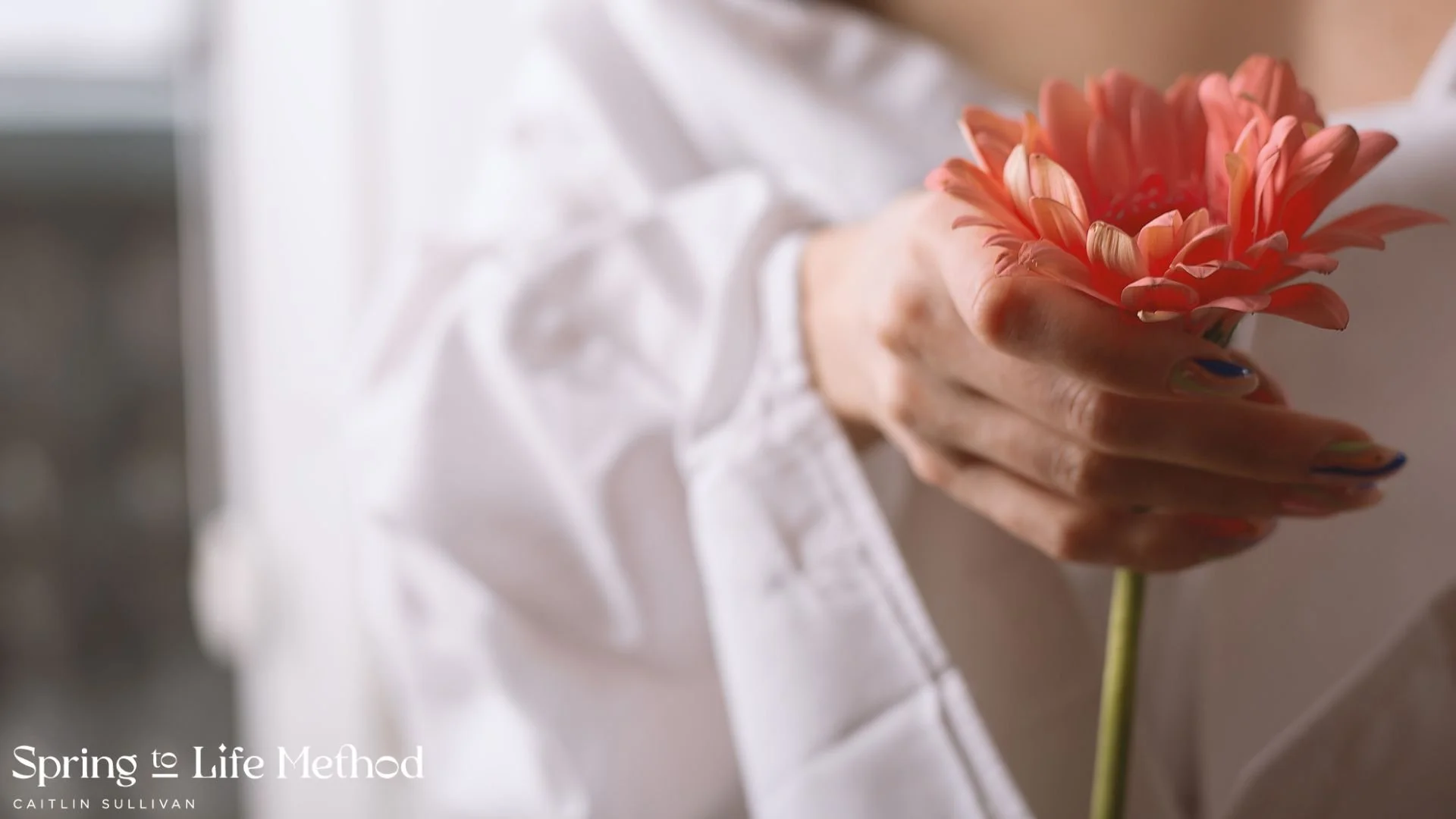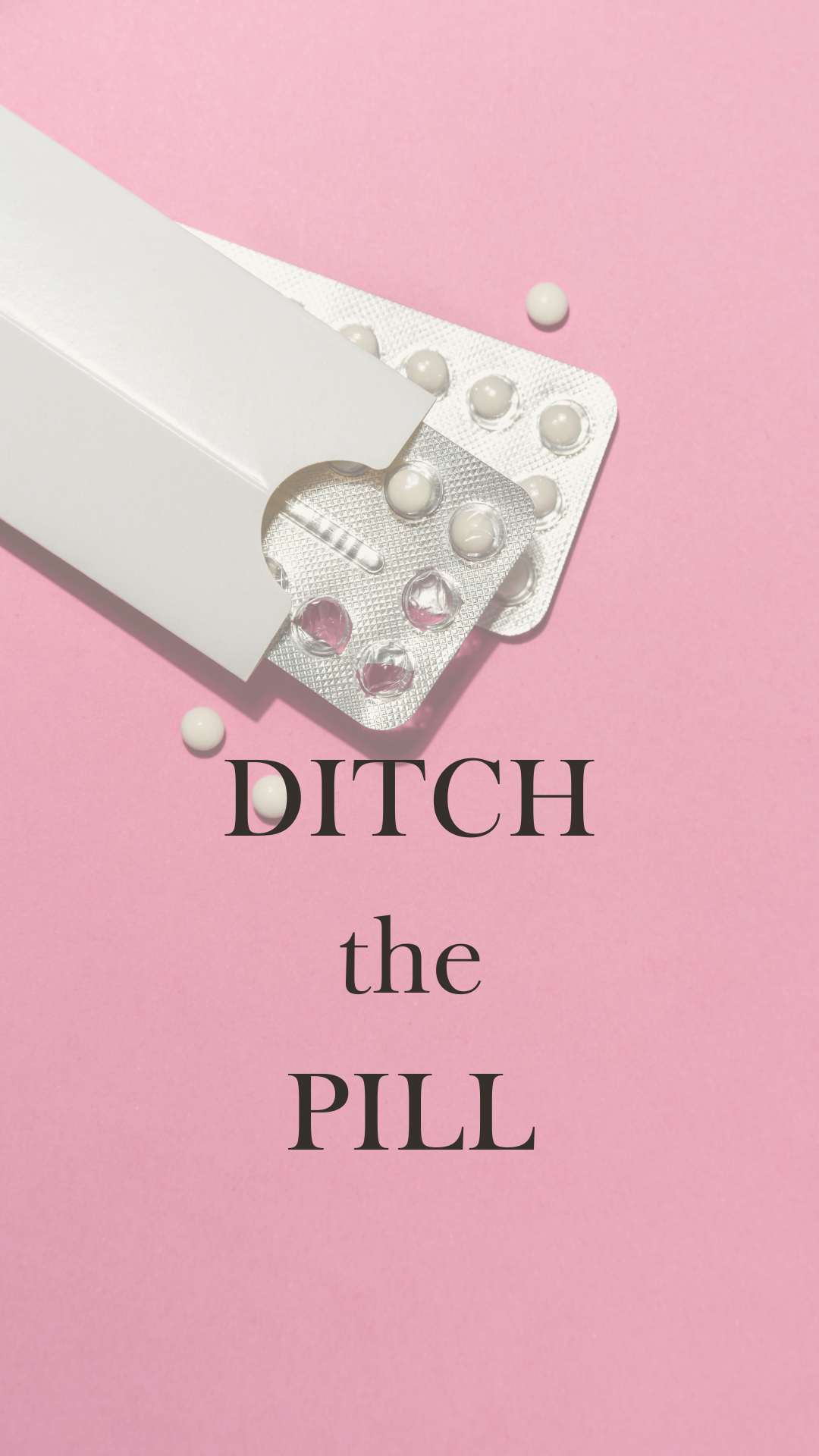Your Sex Drive on the Pill: How Hormonal Birth Control Can Affect Desire
Ok, it’s about to get real intimate here—but I want to share these stories because it’s important for women to know they have options. If you haven’t already read Your Gut on the Pill or Your Mental Health on the Pill, start there for the full picture of how hormonal contraceptives can impact your health.
My Experience With Hormonal Contraceptives and Libido
In my early twenties, I decided to get the Skyla IUD inserted (like a Mirena, but smaller). My partner and I loved the peace of mind it provided when things started getting frisky.
But slowly, over the first few years of our relationship, I noticed a decline in my sex drive. I struggled to get aroused or experience orgasm, which was frustrating because my libido had been healthy before. I began to feel like something was wrong with me.
On top of that, sex became physically uncomfortable. Positions that were once pleasurable were now sometimes sharply painful. I also dealt with frequent yeast infections or UTIs, even though I maintained excellent hygiene.
This cycle of low desire, pain, and infections started to affect my relationship, causing tension and arguments.
Five years later, I finally had my Skyla IUD removed—and the change was night and day. My sex drive returned almost immediately, along with a flood of emotions: relief, pleasure, and anger, to name a few.
Different types of contraceptives will have varying degrees of impact, depending on the individual
Why the Pill Can Affect Your Libido
I shouldn’t have been surprised. I had briefly been on a generic pill at 21, and the side effects—migraines, intense cramping, and hot flashes—made me stop within a few months. I assumed the low-dose hormones in the Skyla IUD would be gentler.
The truth? My Skyla IUD drastically affected my libido. The temporary relief of pregnancy prevention didn’t outweigh the costs: compromised gut health, mood changes, and a seriously tanked sex drive.
This is the great irony of hormonal contraceptives: they were marketed as a sexual liberation tool for women—but they can suppress sexual desire, pleasure, and overall sexual well-being.
For perspective: imagine a drug that nearly obliterated men’s libido. Would it even reach the market? Yet women have been experiencing this side effect for decades—over 60 years!
How Hormonal Contraceptives Affect Libido
1. Increased Sex Hormone-Binding Globulin (SHBG) and Lower Free Testosterone
Women naturally produce small amounts of testosterone, which is necessary for a healthy sex drive. Hormonal contraceptives increase SHBG, a protein that binds to testosterone, rendering it unavailable.
Put simply: the pill floods your system with SHBG, leaving very little free testosterone to support your libido. The very medication designed to allow safe sex is simultaneously reducing desire.
2. Pain With Sex
Hormonal contraceptives can increase the risk of vulvodynia—chronic vulvar pain—which leads to dyspareunia (painful intercourse). This alone can make sexual activity uncomfortable or even dreaded.
3. Decreased Vulvar and Clitoral Tissue Volume
Studies show that the pill and other hormonal contraceptives can shrink labial tissue and clitoral volume by as much as 20%, impacting sexual sensation and pleasure.
4. Increased Risk of Yeast Infections and UTIs
Hormonal contraceptives disrupt the gut microbiome, which also affects the vaginal microbiome. When vaginal pH is off, infections like yeast infections or UTIs become more frequent. Antibiotics may fix the infection temporarily, but they further disrupt the microbiome, creating a vicious cycle.
It is possible to reclaim your libido
Reclaiming Your Libido
You deserve a healthy, functional, and pleasurable sex life. Here’s how to start reclaiming it:
1. Care for Your Gut
Your gut is central to immunity and hormone balance. Removing inflammatory foods like alcohol, caffeine, gluten, processed sugar, and soy can help reduce infection risk. Include gut-friendly foods such as:
Yogurt
Fruits and vegetables
Fermented foods like pickles, sauerkraut, and kimchi
A healthy gut can reduce infections, inflammation, and restore hormonal balance.
2. Eat Aphrodisiac Foods
Certain foods naturally support libido:
Avocados
Figs
Honey
Strawberries
Chocolate
Saffron
Oysters
Incorporating these into your diet can support sexual desire and hormone health.
Oysters have long been considered an aphrodisiac food
3. Use a Non-Toxic Lubricant
A quality lubricant can make sex more enjoyable, especially if dryness or irritation is an issue. Always check ingredients, as some lubes can aggravate infections. My favorite is Foria, which is clean and body-safe.
4. Ditch the Pill (Or Other Hormonal Contraceptives)
The most direct way to restore sexual desire is to remove the hormonal contraceptive that may be suppressing your libido. There are many non-hormonal options, including:
Copper IUD
Barrier methods (condoms, diaphragm)
Fertility Awareness Method (FAM) and cycle tracking
Educating yourself about non-hormonal options can help you take control of your reproductive health while supporting overall well-being.
My e-book, Ditch the Pill, walks you through the steps to safely transition off hormonal contraceptives while restoring gut, liver, and hormonal health.
Final Thoughts
If your sex drive has suffered on the pill, know this: it’s not your fault. Your libido, pleasure, and sexual health can be restored, often dramatically, once you address the root cause.
By supporting your gut, optimizing hormone health, and exploring non-hormonal contraceptive options, you can reclaim your sexual desire, experience pleasure without pain, and live a healthier, more empowered life.
You deserve to feel confident, desire-driven, and free to enjoy your sexuality—without compromise.
Quitting hormonal birth control can feel like stepping into the unknown. Will you face acne, irregular cycles, or mood swings? How do you advocate for yourself with your doctor? With Ditch the Pill, you’ll get a clear, step-by-step roadmap to navigate the transition—without the stress.
This 70+ page eBook, paired with a powerful workbook, gives you the tools to:
Understand Your Hormones: Learn exactly what happens in your body when you stop the pill and how to prepare for the shift.
Know Your Bloodwork: Discover precisely which blood panels to request to assess your hormonal health and track your recovery.
Talk to Your Doctor: Get expert tips on how to confidently discuss getting off hormonal birth control with your healthcare provider.
Ease Symptoms: Tackle common challenges like acne, irregular periods, and mood changes with proven strategies.
Nourish Your Body: Explore hormone-friendly nutrition and lifestyle tips to detox and rebalance.
Track Your Progress: Use the included symptom tracker, meal planner, and cycle tracking template to stay in control.
Why Now?
Your hormonal health can’t wait. For just $9.00, you get everything you need to transition off the pill with ease. Grab it now and start your journey to hormonal freedom!
Get Your Copy Now for $9.00
Instant download. Secure checkout. 100% satisfaction guaranteed.
Still Hesitating?
We get it—stopping the pill can feel daunting. That’s why Ditch the Pill is packed with expert advice, including how to ask for the right blood panels and confidently talk to your doctor, to make the process smooth and empowering. You’ve got this!
Start Your Journey Today




